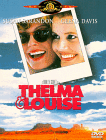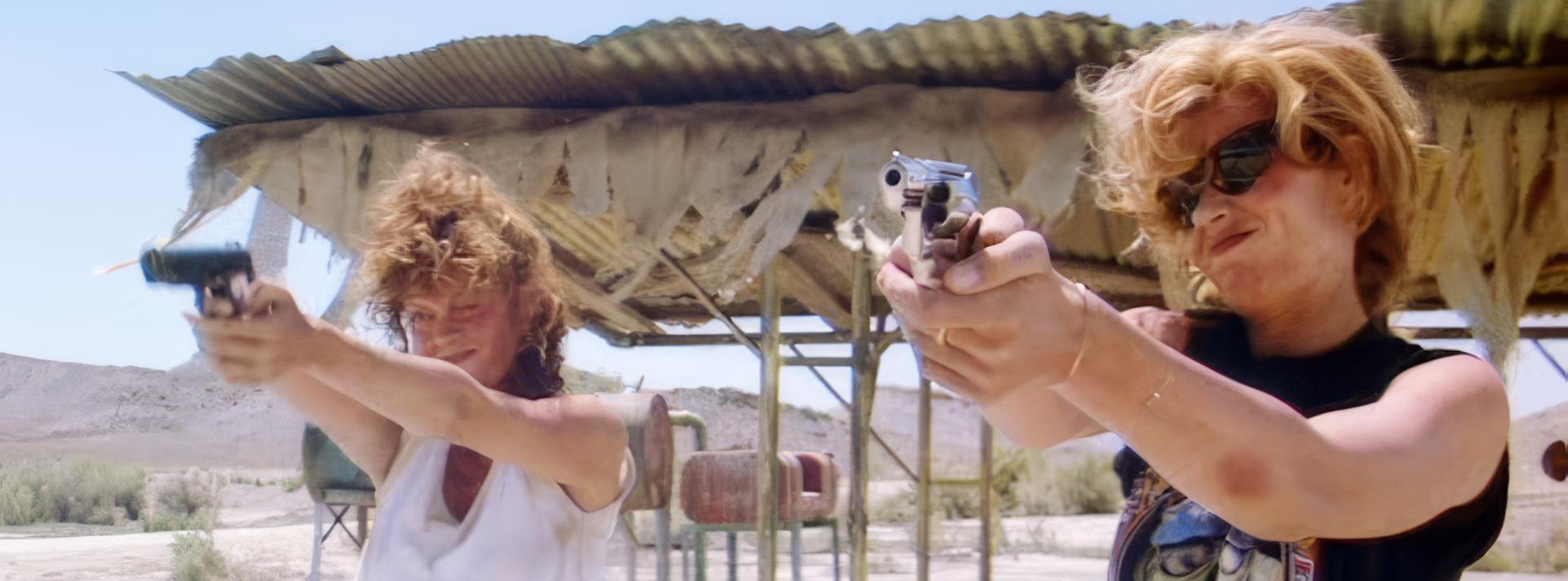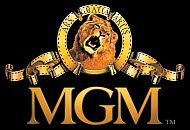Thelma and Louise
 for strong language, and for some violence and sensuality.
for strong language, and for some violence and sensuality.
Reviewed by: Brett Willis
STAFF WRITER
| Moral Rating: | Very Offensive |
| Moviemaking Quality: |
|
| Primary Audience: | Adults |
| Genre: | Adventure Crime Drama |
| Length: | 2 hr. 9 min. |
| Year of Release: | 1991 |
| USA Release: |
May 24, 1991 |

Learn about SPIRITUAL DARKNESS
SEXUAL LUST OUTSIDE OF MARRIAGE—Why does God strongly warn us about it?
Is there a way to OVERCOME illicit and excessive lust for sex?
PURITY—Should I save sex for marriage?
TEMPTATIONS—How can I deal with them?
CONSEQUENCES—What are the consequences of sexual immorality?
 Learn how to make your love the best it can be. Christian answers to questions about sex, marriage, sexual addictions, and more. Valuable resources for Christian couples, singles and pastors.
Learn how to make your love the best it can be. Christian answers to questions about sex, marriage, sexual addictions, and more. Valuable resources for Christian couples, singles and pastors.
About the FALL OF HUMANS to worldwide depravity
| Featuring |
|---|
|
Susan Sarandon … Louise Geena Davis … Thelma Harvey Keitel … Hal Michael Madsen … Jimmy Christopher McDonald … Darryl Stephen Tobolowsky … Max Brad Pitt … J.D. See all » |
| Director |
|
Ridley Scott |
| Producer |
|
Pathé Entertainment Percy Main See all » |
| Distributor |
This is a “buddy” movie about two ordinary women who innocently decide to break out of their everyday lives and somehow end up running from the law.
Louise (Susan Sarandon) is going on a weekend fishing vacation, and she persuades Thelma (Geena Davis) to disobey her husband and come along.
When Thelma flirts with a bar patron and he tries to rape her, Louise pulls a gun and rescues her friend; but in the process, she uses excessive force. The remainder of the film is one long huntdown drama/chase scene, as Louise refuses to negotiate with the authorities because of a bad prior experience with the system.
Profanity is extreme. Besides the attempted rape scene, Thelma later has implied sex with a drifter (Brad Pitt). There are several scenes of violence or threatened violence, as the stakes keep going up for the two fugitives.
The script is constructed so that Thelma and Louise are more or less forced into some of the desperate measures they take. The film has a definite feminist edge, portraying the women as victims of a patriarchal society.
In a conference of Hollywood biggies about movie violence (held in response to a school shooting by a first-grader), “Thelma and Louise” screenwriter Callie Khouri said that she intended the first scene of violence (in which Louise rescues Thelma from an attempted rape, and then shoots the smart-mouthed rapist AFTER both women are already safe) to convey a sad message of Louise having sealed her fate with that ill-advised act.
Khouri claimed she was shocked when she attended a theater screening and the audience cheered loudly at this scene. Assuming that she’s telling the truth, Khouri is admitting that she was out of touch with how her Oscar-winning screenplay would affect real people. The rapist certainly deserved punishment, but not summary vigilante justice. If that’s what feminism is all about, then unborn children aren’t the only ones endangered by it.
Although a few scenes are played for laughs, the subject matter is too serious to serve as light entertainment. And the overall mood of the film, which pits men and women against each other, is not healthy for anyone (Christian or otherwise) who takes its message too seriously.
I recommend skipping this one unless you’re a well-balanced, mature adult.


Sarandon and Davis are perfect as the leads. If you have a problem with feminist ideas, this is not for you. The violence, profanity, and brief sex scenes aren’t for kids, but this might be appropriate for older, more mature teenagers. [3/5]


At the end, they opt for driving their car off a cliff rather submitting to authorities. I found myself riveted by this movie, but I also realized how bad the message was and had the spiritual capacity to extricate myself out of its subliminal influences. Hollywood at its most dangerous.
My Ratings: Moral rating: 1½ / Moviemaking quality: 4